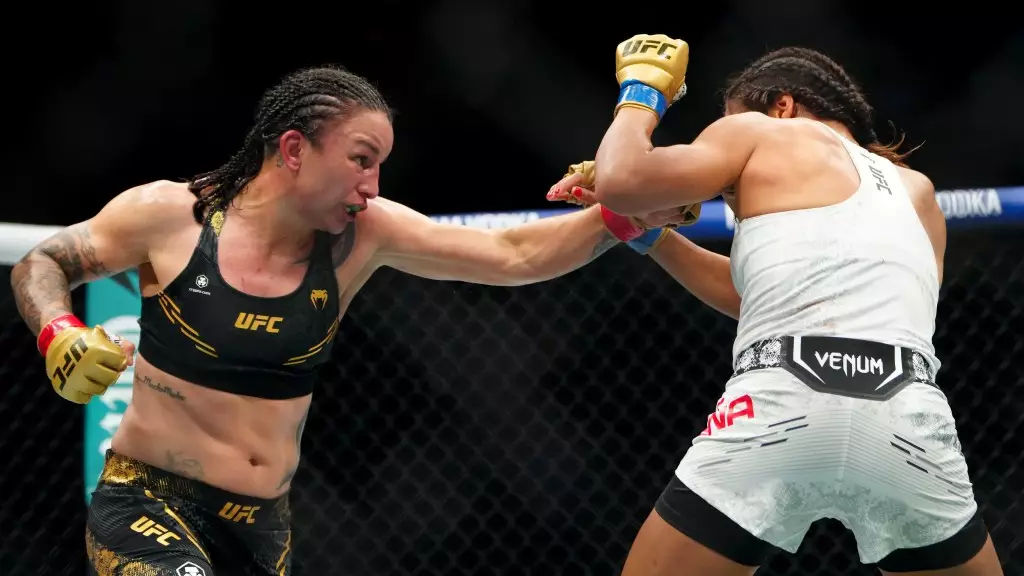In an arena filled with high expectations, Raquel Pennington experienced a bitter twist in her latest UFC bout against Julianna Peña at UFC 307. Despite entering the co-main event with a notable six-fight winning streak and having recently claimed the vacant bantamweight championship title, Pennington left the Octagon with a split decision loss that she vehemently contests. The fight, held in Salt Lake City, has sparked significant debate among fans, commentators, and analysts who believe the judges’ scoring does not reflect the true nature of the competition.
The decision itself was dissected closely, with Pennington garnering a 48-47 score on one judge’s card while losing the remaining two rounds by the same margin. This uneven scoring has only fueled the fire, as many observers argue that Pennington showcased a fighting style that merited victory. A glance at social media reveals an outpouring of support for Pennington, with fans expressing their discontent regarding the judgment rendered on such a high-stakes platform.
Furthermore, the scrutiny extends beyond fan reactions; even media professionals seem to favor Pennington’s performance. MMADecisions.com indicates that a robust majority of twenty-five media members scored the bout in favor of Pennington, with only one card going to Peña, highlighting the discord between public sentiment and the judges’ final ruling. Such disparities in scoring practices can erode trust in the officiating and lead to broader discussions about how fights are judged.
In an emotional response shared via Instagram shortly after the match, Pennington opened up about her feelings, expressing both disappointment over the loss and gratitude towards her supporters. “I do not feel I lost that fight,” she asserted, hinting at a resilient spirit that speaks volumes about her character as an athlete. Her message addresses the complexities of competition—a blend of both victory and defeat—underscored by her call for a rematch.
Moreover, Pennington took the opportunity to recognize the individuals who supported her through the rigorous fight camp. The mention of her coaches, training partners, and family is a testament to the network of support that many athletes rely on, emphasizing the communal aspect of sports. This public acknowledgment can forge even stronger relationships and highlight the importance of teamwork in achieving success.
As discussions continue about the fairness of the scoring system and its implications for fighters’ careers, Pennington sums up a relevant point: the need for improvement in the judging process. Athletes like Pennington dedicate years to honing their skills, and when results swing due to subjective decisions, it casts a shadow over their achievements.
While Raquel Pennington may have faced a setback, it’s evident that her journey as an athlete is far from over. The call for a rematch could lead her back into the Octagon sooner rather than later, offering an opportunity not only for redemption but also to assert her rightful place in the bantamweight division. As fans continue to rally behind her, the narrative surrounding Pennington serves as a reminder of the trials and tribulations faced in the pursuit of excellence.

